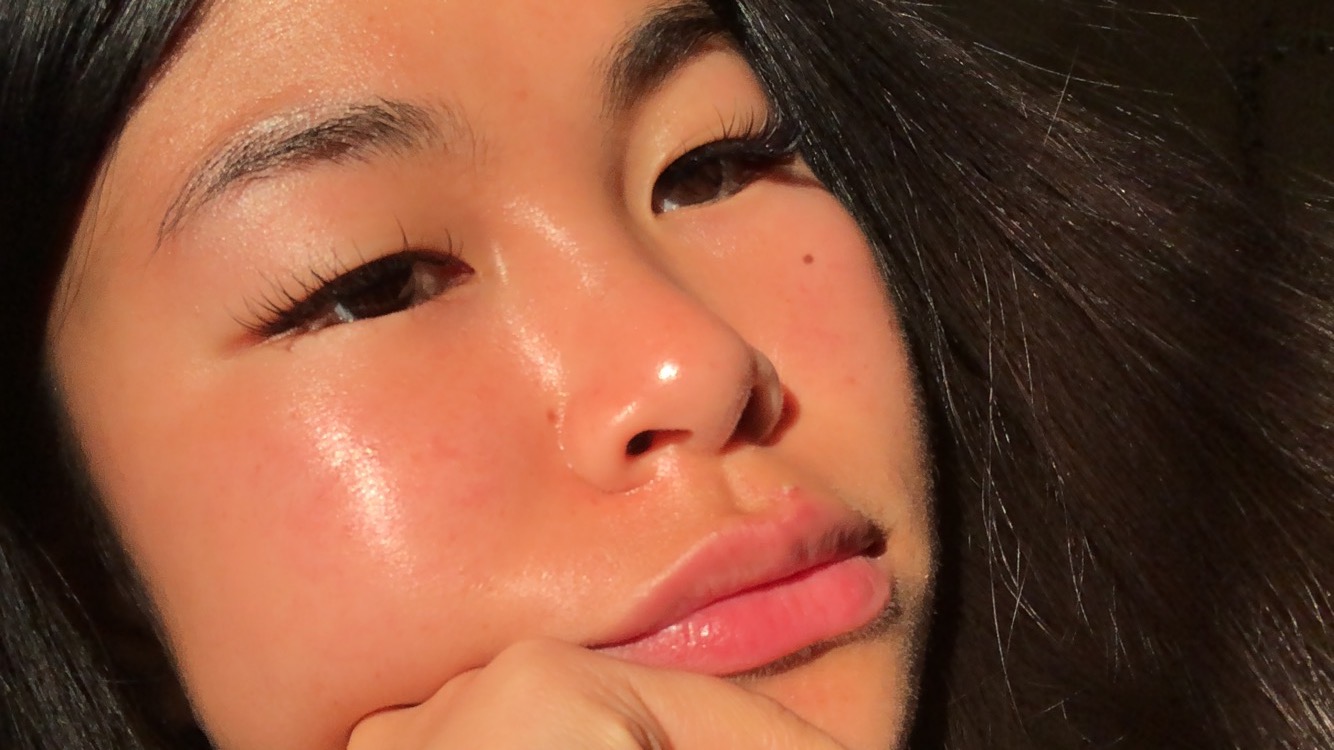Skincare Sophism
“‘There is no exquisite beauty… without some strangeness in the proportion.’” - Edgar Allan Poe, in Ligeia
I am genetically blessed in the conventional aesthetic sense. I never had to struggle with acne and the hair on my head and brows grows incredibly fast and thick. In high school, while my friend popped her zits she turned to me and asked, “What IS your secret?”
I shrugged, I didn’t know about hacks or “holy grails”. “I wash my face every day,” I offered. “With a bar of soap.” In particular, I used Ivory bar soap, which was what we had around the house. Developed in 1879 by Proctor & Gamble, the scented bar soap is essentially composed of sodium tallowate and/or sodium palmate, sodium palm kernelate and/or sodium cocoate, sodium chloride, and glycerin. This is basically salt and animal fat and lye, the very latter of which constitutes the chemical reaction between triglycerides and a base, called saponification. While effective at cleansing, the pH of Ivory soap is actually too high and was likely stripping natural oils and the acid mantle of my skin, which typically has a pH of 4.7. Besides glycerin, the soap doesn’t contain ingredients to support moisture and hydration. Luckily, I have adopted better products since college: mild cleansers with a synthetic detergent.
And it was really only in college that I had any semblance of a “skincare routine”, when I started noticing how deep the bags under my eyes looked. Frankly, this was exacerbated from back-to-back all-nighters and my horrible diet, but when an ad promises to reduce fine lines with a magical cream, the tiny “dermatologist-tested” $45 pot seems well worth it. Like millions of capitalistic adults, the concern of aging significantly drives a global revenue of nearly $100 billion in cosmetics, with skincare leading the market by roughly 41 percent. While beauty products have come a long way from lead-based ceruse, the industry is still highly toxic to our finances and our values.
We are evidently visual beings. We perpetually judge others by their appearance and it is the first thing we notice about someone else. We take great lengths to primp and preen ourselves each morning, some investing more effort and money towards this regimen. We see this manifest in our rampant media consumption with celebrity and (more impactful) influencer endorsements, viral TikTok products, and product ads with bold claims to “detoxify”, “rejuvenate”, or “replenish” within an “instant”. A study from the Journal of Advertising Research found that a mere 18 percent of claims made in cosmetic advertisements were meritable. Marketing takes advantage of scientific jargon to create consumer fallacy and reinforces a definition of unrealistic beauty standards to make you “feel confident in your own skin”, if you invest in their product. Cosmetics and skincare, including those that tout anti-aging properties, are widely unregulated. Since the 1930s, manufactured products that intend to alter the dermal structure would be classified as a drug by the Food and Drug Administration (FDA). The FDA is responsible for assessing the safety and efficacy of such a product, thus, marketed cosmetics and ingredients do not require FDA approval which allows companies to promote extravagant vagueries to motivate sales.
Dermatologist Fayne Frey and author of the book Skincare Hoax: How You’re Being Tricked into Buying Lotions, Potions & Wrinkle Cream hopes to educate consumers into making informed choices about their skincare regimen. Frey debunks common misconceptions about premium products, testing prices against potency with a corneometer to measure skin hydration. No correlation was found between efficacy and cost, and furthermore, there is insufficient research supporting the miracles of active ingredients such as vitamin C, Coenzyme Q10, and peptides in over-the-counter products. While some of these prized ingredients provide moderate moisture to the skin, affordable alternatives, like several listed here, are equally suitable if not more practical. The scientific evidence of the benefits of topical antioxidants and retinoids (not tretinoin, which is a prescription drug) are diminutive and often exaggerated, and moreover, may lead to skin irritation and dryness. So what do you do? What should I buy?
Frey and any board-certified dermatologist will always recommend daily use of broad-spectrum sunscreen. Products with a Sun Protection Factor (SPF) of 30 or higher block 97% of UVB rays (290 - 320 nm) that cause sunburn. I love the Sun, but regretfully I only started wearing sunscreen less than a year ago after reevaluating my entire routine and opting for minimalism and simplicity, which is Tip #3 from the American Academy of Dermatology. What else is in my bathroom?
A mild cleanser (no more Ivory! But Dove bar soap which contains synthetic detergents is actually okay in Frey’s book) and a hydrating moisturizer. You do NOT need anything else. You’d save time, money, sink/shelf space, and finally, you are divesting from beauty culture and taking back an indigenous grace in authenticity. The skin, the largest organ in our body, is capable of repairing and detoxing on its own, provided we don’t smoke or drink and eat and exercise well. We depreciate the true chemical and biological wonders of the body and buy into marketing schemes that prey on our insecurities and desires to resemble unattainable ideals of beauty. Aging is natural and it is intrinsic for men and women of all backgrounds.
The need to intervene with our aesthetics is facilitated by an epidemic of vanity, under the misguided pretense of self-love and self-care. Beneath the surface lies the stratification of standardized beauty internalized by the consumer generating the demand for waste and superficiality. The hollow pursuit of bourgeois beauty are manifestations of power, affluence, hierarchy, and class that convey complacency to systems of oppression imposed by centuries of stereotypical conceit. The lavish contortions more readily available than medical assistance today signifies the perversion of our values to climb the aesthetic ladder. With heavy consumption and capitalism, the products and procedures on your face communicate a fascination with funneling your funds facetiously, frivolously, and foolishly. We can establish a responsibility to examine our skincare routines and our relationship to beauty from an avaricious industry that is undermining our confidence.
 Sophia Suffers Sunburn (2019) ✵ I tan easily, and naively I believed that I was less susceptible to sunburn. Like a majority of skincare consumers, I had so many misconceptions from a lack of knowledge and bewilderment from the myths and truths about self-care and beauty.
Sophia Suffers Sunburn (2019) ✵ I tan easily, and naively I believed that I was less susceptible to sunburn. Like a majority of skincare consumers, I had so many misconceptions from a lack of knowledge and bewilderment from the myths and truths about self-care and beauty.  Looking Ahead (2022) ✵ Goodbye preconceived notions, hello Sun(screen)!
Looking Ahead (2022) ✵ Goodbye preconceived notions, hello Sun(screen)!
science culture lifestyle beauty 